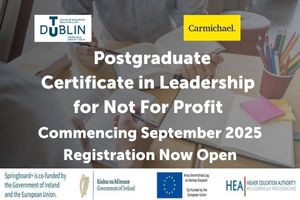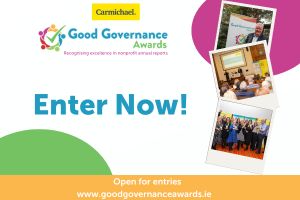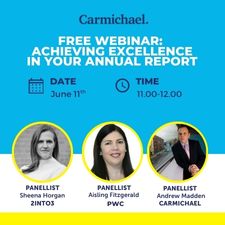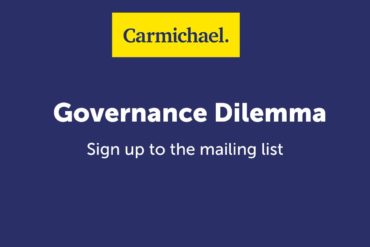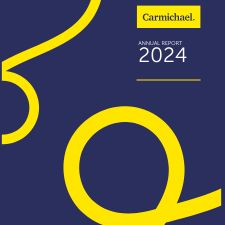Target Audience
Designed for staff who are responsible for online communication in their organisation. An organisation must be a registered charity to claim the Google Ad Grant.
Outline
- Introduction to the Google Ad Grant – what is it about?
- Key benefits of the Google Ad Grant
- Overview of a Google Ad Structure Campaigns – Google Campaign, Ad Group and Ad.
- Is your charity’s website ready?
- Strategy and keywords
- Conversion track and what to track
- Staying Compliant
- Q&A
Methodology
Online via Zoom.
Target Audience
This course is suitable for staff responsible for marketing in an non-profit organisation.
Outline
- Why choose email marketing?
- Getting started with email marketing
- Designing and writing emails that work
- Evaluate emails and reporting
- Growing and managing your email list
Methodology
Online via Zoom.
Target Audience
Experienced Excel users looking to enhance their skills in areas detailed below.
Outline
This short course you cover:
- Creating nested if functions using IFS function.
- Exploring new functions: Filter, Vstack/Hstack, Unique/Sort.
- Working with dates and times in Excel.
- Working with Vlookup/Hlookup/Xlookup.
Methodology
- Delivered virtually via Zoom.
- GiraffePad will be the platform used to hold the Zoom link/training materials/recording.
Target Audience
Experienced Excel users turn data into visuals that are easier to understand.
Outline
In this short course you will:
- Review of basic charts.
- Good practices around chart creation: choosing a chart, formatting.
- Diving into lesser known charts: Treemap, funnel, Box and Whisker, Scatter chart.
- Use GetPivotData() function to expand your pivot chart possibilities
- Adding your chart to PowerPoint/animating it.
Methodology
- Delivered virtually via Zoom.
- GiraffePad will be the platform used to hold the Zoom link/training materials/recording.
Target Audience
If you are an experienced Excel user, you will know that you spend a good chunk of your time re-organising and re-formatting data. What if there was a way within Excel to automate this? Meet Power Query…
Outline
In this short course you will learn:
- What is Power Query and why should you care?
- Text clean up.
- File clean up.
- Combining folder contents automatically.
Methodology
- Delivered virtually via Zoom.
- GiraffePad will be the platform used to hold the Zoom link/training materials/recording.
Target Audience
Board Members, CEOs and Finance Managers of Charities.
Outline
SORP requirements for Charities and the responsibilities of the Board of Directors under the Charities Act.
The main areas covered will be:
- What are the responsibilities of the Board of Directors under the Charities Act
- What are SORP’s (Statements of Recommend Practice)
- What is the purpose of SORP
- Why are they necessary in charity financial reporting
- What are the requirements of SORP for Charities
- What is the connection between the Charities Act 2009 and SORP
- What are the key requirements of SORP FRS102 (latest SORP)
- How to lay out Financial Annual Accounts in SORP Format
- What is a Statement of Financial Activities (SOFA) and how to construct it
- The rules on Income recognition under SORP
- The rules of allocation Overheads by Charity Activity
- What is happening in the Regulators office for implementing a SORP in Ireland
- Latest information on the consultation process
- What is an Activity Report which is required from all charities regardless of size.
Methodology
Delivered virtually via Zoom.
Target Audience
All people working in the non-profit sector.
Outline
How do you move from launching your strategic plan to ensuring effective implementation? This workshop will bring a mix of theory, best practice and practical steps on how to implement. You don’t have to have a shiny strategic plan to attend – this workshop will support people interested in how to turn words into positive outcomes.
This workshop will break down the steps to implement your organisation’s strategic plan effectively. Participants will be given best practice examples to illustrate how each implementation step can be approached. Participants can, if they wish, bring their Strategic Plan with them to use for group work.
This workshop introduces essential internal planning and reporting framework that will help align your work and your organisation’s work with its strategic goals. Applicable to all levels in an organisation i.e., anyone who is passionate about maximising their productivity and focusing their work will have something to gain by coming along.
Methodology
In person, Carmichael Centre, Dublin 7.
Target Audience
Designed for all staff and volunteers working within non-profit organisations.
Outline
1. Introduction to AI in Non-Profits
- Overview of AI and its relevance to non-profits
- Benefits and ethical considerations
2. Understanding Chat GPT
- What is Chat GPT?
- Definition and capabilities
- Use cases in non-profits
- Practical Demonstrations
- Live example of ChatGPT in action
3. Writing Effective Prompts
- Basics of prompt writing
- Structure and clarity
- Examples of good and bad prompts
- Techniques to enhance prompt effectiveness
- Use of context and specificity
4. Refining ChatGPT Outputs
- Iterative refinement techniques
- Analysing initial outputs
- Tweaking prompts for better results
5. Custom GPTs
- Introduction to Custom GPTs
- Definition and potential
- Creating and managing Custom GPTs
- Use cases for non-profits
- Tailoring AI to specific organisational needs
6. AI in Speeding Up Internal Processes
- Streamlining communication
- Email and report generation
- Data analysis and insights
- AI-powered data processing
- Enhancing customer service
- Automated response systems
7. AI-Generated Imagery
- Introduction to AI-generated imagery
- What it is and how it works
- Tools and platforms
- Overview of popular tools
- Practical guide to generating images
- Step-by-step process
- Ethical use of AI imagery
- Recognising and appropriately using AI-generated content
8. AI Video Editing Tools
- Overview of AI video editing tools
- Introduction to Descript and other tools
- Enhancing video production
- Features and benefits for non-profits
- Practical demonstrations
- Editing a sample video with Descript
- Best practices for professional video output
- Tips and tricks for polished videos
9. Case Studies and Best Practices
- Real-world examples
- Success stories from non-profits with AI
- Lessons learned and pitfalls to avoid
10. Q&A and Hands-On Workshop
Methodology
Delivered via Zoom.
Target Audience
Board members, managers and all those with responsibility for the financial viability of their voluntary organisations.
Outline
Course material will include where to look for vital sources of funding, how to answer the critical questions that funders ask, how to develop a compelling story, an A to Z of digital and face to face fundraising techniques and with presentations focussed on sectors such wellbeing, social, community, health, enterprise, educational, arts environmental and other objectives.
Methodology
Delivered virtually via Zoom.
Target Audience
This course is aimed at Board members/staff of non-profits who need to develop or enhance their understanding of Risk Management.
Outline
This course will enable participants to develop a good understanding of Risk Management within an organisation and the tools which can be employed to minimise risk. It also shows how the roles of Boards is vital for effective risk management and how risk management makes for very effective Boards.
Topics covered include:
- Understand Risk
- Understand Risk Categories
- Understand Risk Management and Know Why It Is Important
- Understand What Makes a Good Risk Management System
- Drafting your own Risk Management Strategy
